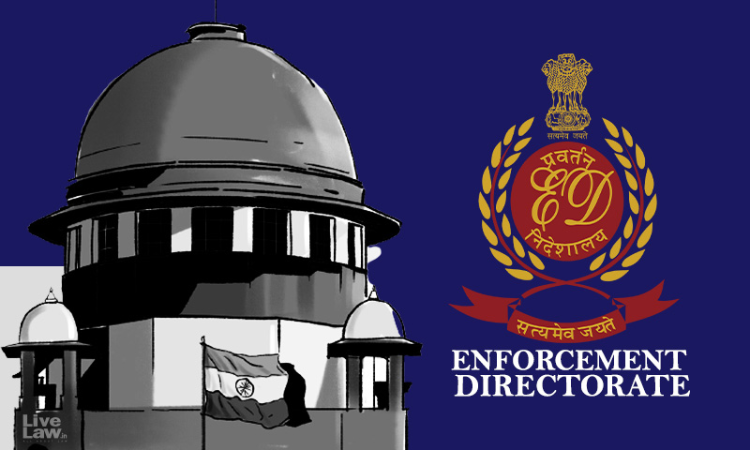To Say That ED Has To Wait For FIR In Scheduled Offence Will Make PMLA Unworkable, Says Supreme Court During Hearing
Mehal Jain
16 Feb 2022 9:36 PM IST

Next Story
16 Feb 2022 9:36 PM IST
The Supreme Court on Wednesday remarked that while the existence of the predicate offence is a prerequisite for the commencement of the investigation by the ED under the PMLA, saying that the ED has to wait for the registration of the FIR in respect of the scheduled offence would make the system "unworkable" and be "counter-productive" to the intent of the PMLA.The Court cited...
